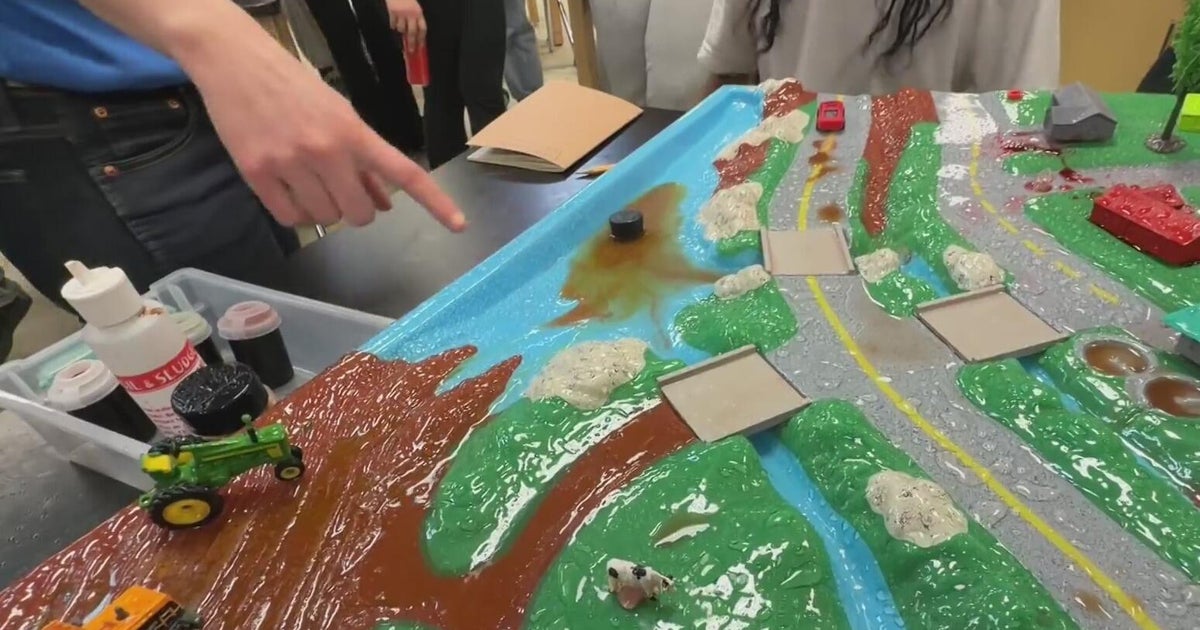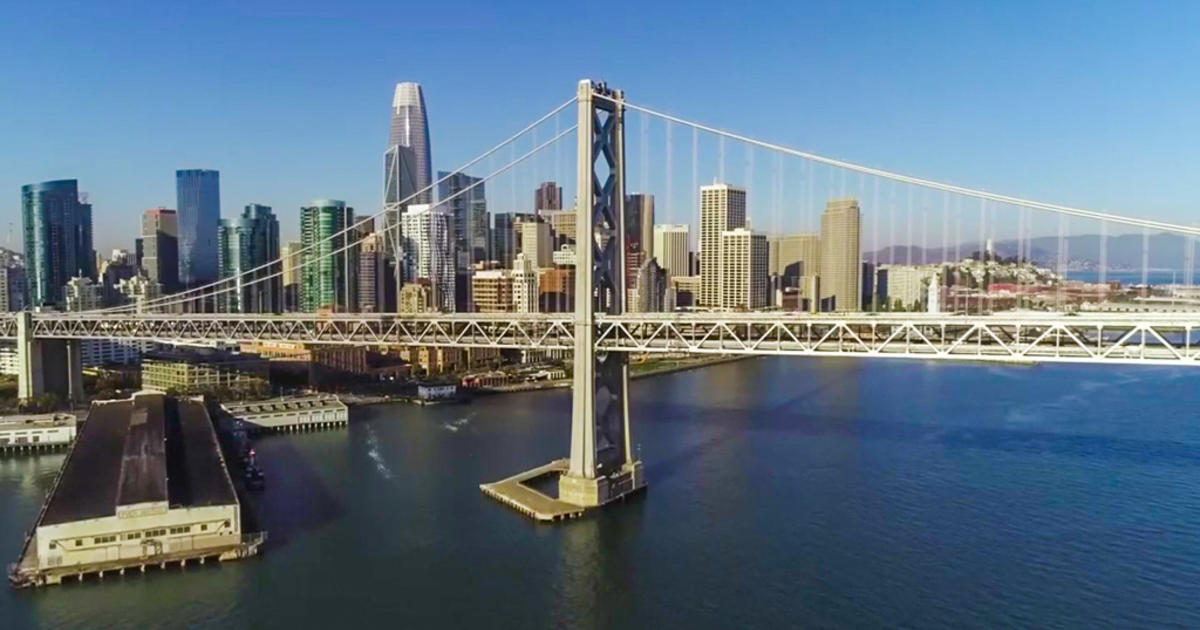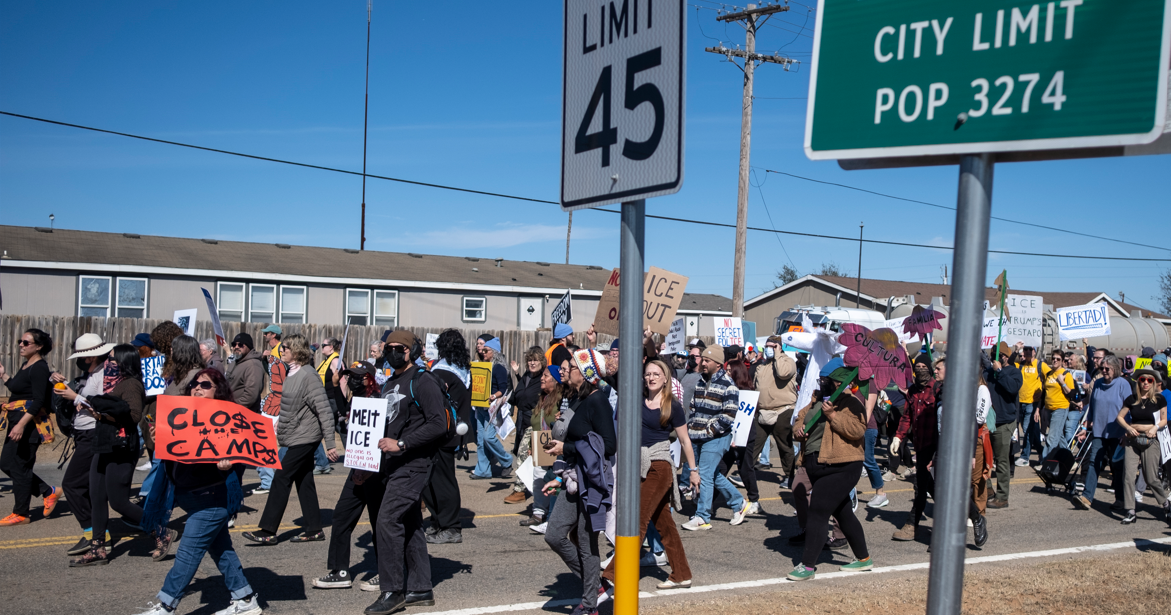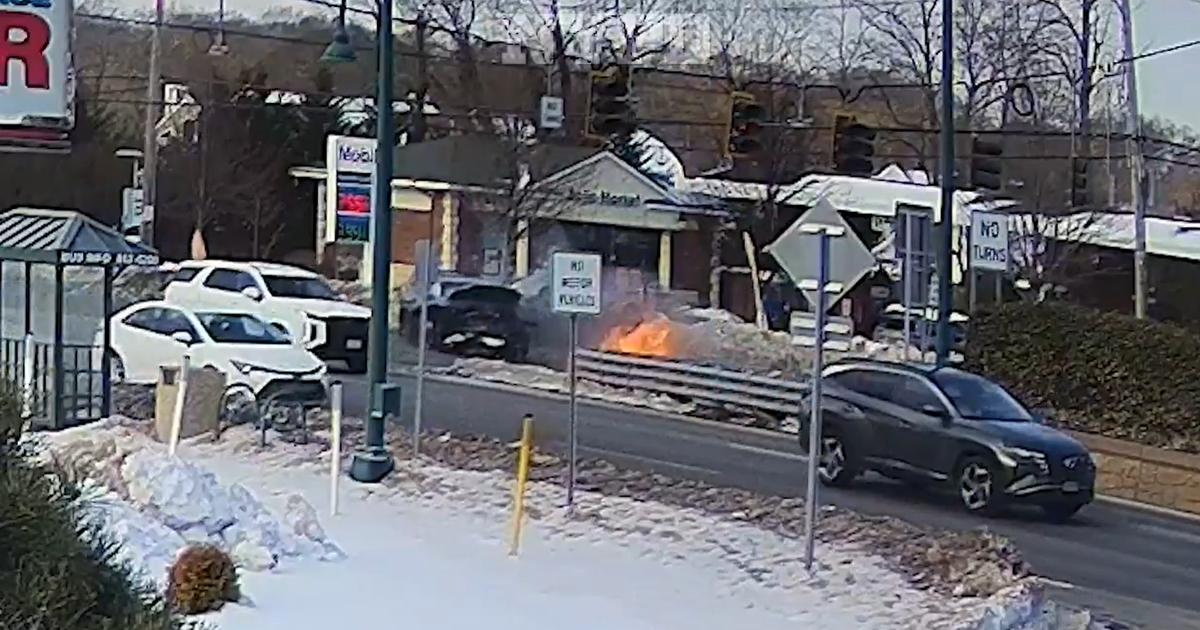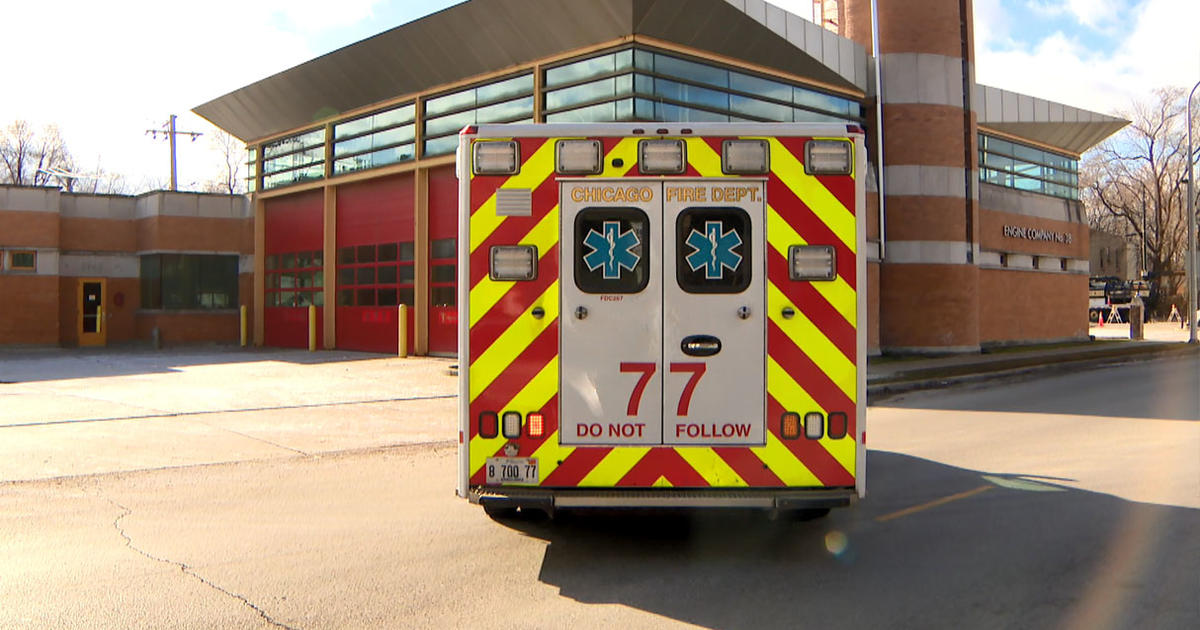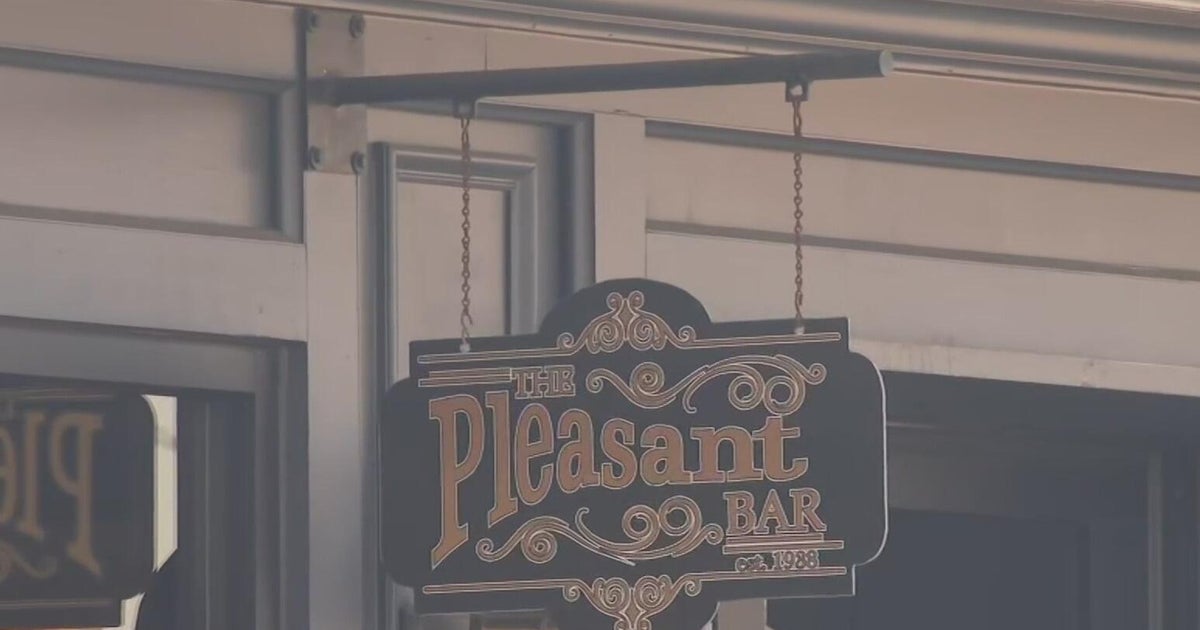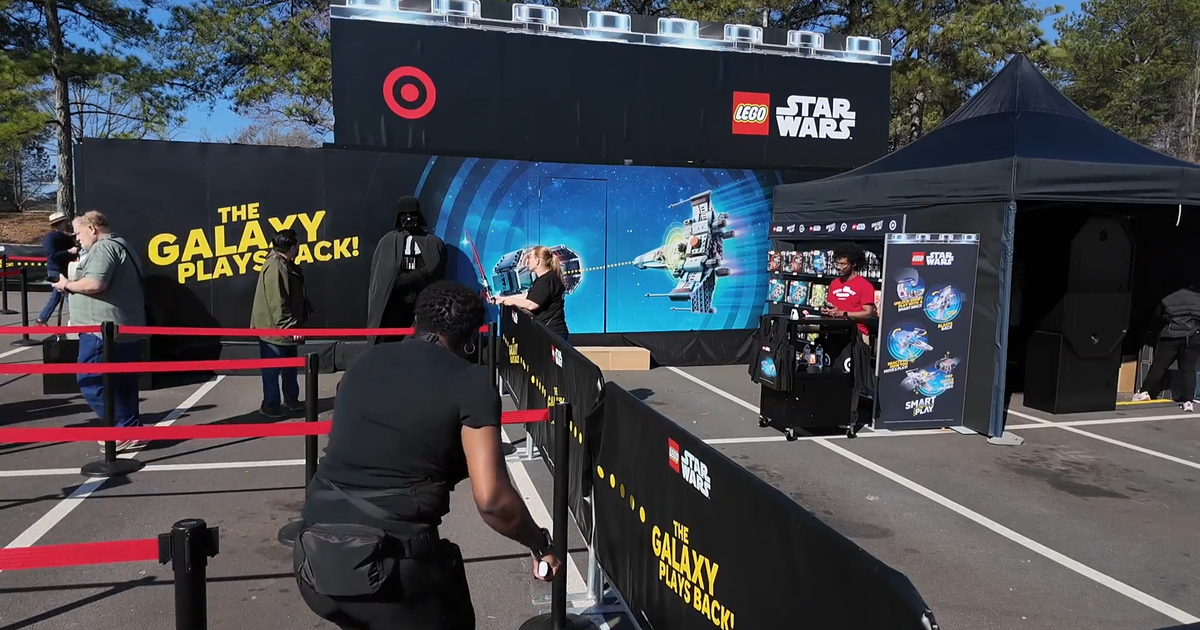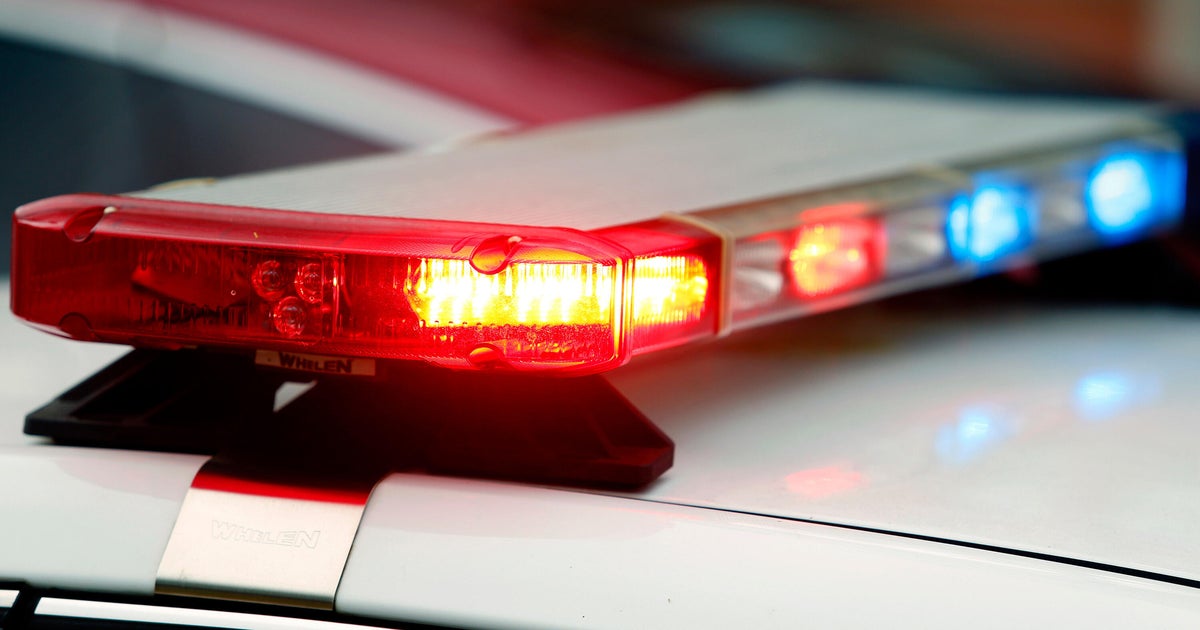San Jose enlisting the help of its residents to improve recycling rates
SAN JOSE -- It's a head-scratcher: Only 37 percent of recyclables get recycled but 95 percent of Californians have recycling. Most of it ends up in landfills, but one Bay Area city is hoping to remedy that situation with the help of its community.
Anthony Santamaria is a man on a mission.
Early morning on collection day, he flips the lids of dozens of recycling bins to eyeball the top contents.
"Well, we see some non-recyclable paper. Ah, plastic wrap," said Santamaria, as he looks inside one bin.
Santamaria is one of six recycling ambassadors established as part of a new pilot program run by the City of San Jose.
The idea is to eyeball the top contents of curbside bins on collection day to give residents a little feedback. They are not going through the cart contents but catching a quick "glimpse."
As to why now, CBS News Bay Area turned to Yamini Sadasivam for perspective. Sadasivam is the supervisor for the Integrated Waste Management Division for the City of San Jose.
"We are seeing a lot of increase in unacceptable materials in the recycling carts that are non-recyclable or recycling material that is too dirty to recycle," explained Sadasivam.
When the recycling material is too dirty to be recycled, it's known to contaminate the entire bin. And contaminated bins are on the rise.
The U.S. Environmental Protection Agency found one in every four recycling items collected is contaminated. Contaminants can be anything from the wrong type of plastic to food and drink waste. The food and drink waste can be a huge problem.
Kerrie Romanow, the Director of Environmental Services with the City of San Jose, told KPIX why food and drink waste is a particular problem.
"A recycling cart becomes contaminated when the wrong materials are in it, particularly liquids and foods because they can spread out on the paper and other products so that we can't recycle it anymore," noted Romanow.
If these items can no longer be recycled, they can end up in a landfill, where the food and drink slowly rot, creating methane, a powerful greenhouse gas.
"It also impacts rates. So, the more that we have garbage in the recycling cart, the more the program costs, which means the more the rates go up for our community," added Romanow.
San Jose is seeking to improve its recycling and keep costs down with this pilot program.
Recycling Ambassadors like Mr. Santamaria provide feedback by attaching stickers to each cart. Residents see either a green "Good job" or a red "Oops". The tags contain visual tips on how to do better.
CBS News Bay Area showed the tags to psychiatrist Dr. David Spiegel. Dr. Spiegel is a well-known expert in human behavior at Stanford University's School of Medicine.
"The "Oops" is sort of semi-humorous, it's not that negative. From my perspective, it's far more effective - the light touch than the negative touch," said Dr. Spiegel.
The psychiatrist applauded San Jose's approach, especially the added visual tips.
"If on top of it, you show people how to do it. You're enabling them to follow through and carry on being on the team and doing things that help make their communities feel better. You feel that you're part of the team rather than part of the problem," added Spiegel.
As for the locals, CBS News Bay Area went near Santana Row and found San Jose resident Dirk Luijendijk and his two children. Luijendijk said the "Flip the Lid" program is a positive step forward.
"I think it's a good way to help the citizens of San Jose do a better job," noted the father.
The family has lived in San Jose for a while, but will soon move back to the Netherlands, where the recycling rate is 80% compared to San Jose's 57%.
"This is a good starter but with all these initiatives I think it's only successful if the city is consistent and persistent in continuing to educate," said the young father.
And it is a work in progress. Santamaria told CBS News Bay Area that on the day KPIX visited he tagged 85 recycling carts — And only two got a "green" tag. But Santamaria is hopeful. He said the program taught him how he could improve in his own home.
Officials with the city of San Jose told us the feedback from the community has been mostly positive. Residents have, however, told officials that they find recycling confusing.
There are some items frequently spotted in bins that are not recyclable:
- Bagging recyclables: Many residents are surprised they should not bag recyclables.
- Plastic wrap and plastic film
- Plastic to-go bags
- Coffee cups
- Paper towels, paper napkins, tissue, and Kleenex
- Pet training pads
The team has so far tagged over 5,200 carts and visited over 6,700 addresses. All tagged bins even the ones with "Opps" tag will still be collected by the recycling service providers. The only exemptions is if the bins contain any household hazardous waste or HHW.
If HHW is confirmed by the hauler, a non-collection notice will be placed on the bin and the bin won't be collected.
The city anticipates that the pilot will continue through spring 2025.
CalRecycle offers great insight into what you can and can't recycle.
For more information go to:
